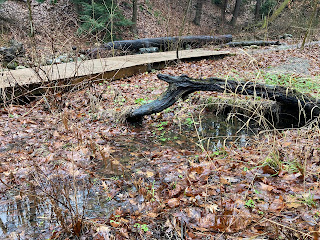The Hospitality Holiday
I Will Write ‘Thank You’ Cards to My Former Hosts This Thanksgiving
A thing I love about travel is that I fall in love with
being home again after each journey.
Travel is wonderful and stimulating and educational, but I love to come
home again and feel like I belong in a familiar environment. So, when I travel, there is something sweet
and comfortable about being a guest at the home of a good friend or family
member who is my host for a meal or an overnight stay.
This Thanksgiving I thought it would be appropriate to write
thank you cards to the people who were my hosts while I was traveling. I have extended family members who live out
of state, and I have friends as well who live across the country. A lot of my trips have involved visiting
these special people in my life. In many
cases, years go by between visits. In a
way that is sad, but it does make our time together so meaningful.
The First Thanksgiving
Many Americans know the story of the first Thanksgiving in
America. To me, it really is a
hospitality story. The Pilgrims, who
traveled from Holland to current day Massachusetts in 1620 seeking to practice
religion freely, relied on Native Americans to show them how to grow crops and
survive in unfamiliar territory. As the
author Nathaniel Philbrick covers in his book, “Mayflower: Voyage, Community,
War,” the Pilgrims and Native Americans shared a meal together the following
year, which, much after the fact, has come to be known as the first
Thanksgiving. For this meal, the Native
Americans, in this case the Pokanokets, hunted deer which they brought to share. The Pilgrims shared ducks and geese at the
meal. The crop of corn, squash and beans
that Squanto, the Native American interpreter, had taught the Pilgrims how to
grow, would be ready to harvest in the fall.
Even turkeys were abundant near the Pilgrims’ colony in 1621. For that shared meal to happen, the Pilgrims
and Pokanokets put much effort into establishing a formal relationship between
them. At that moment in time, which we
think of as the original Thanksgiving, the two different groups had achieved
peace, even after they had feared each other. And to me, that is an amazing and
important history to remember; a telling for which to be thankful.
Receive As You Would Like to Be Received
Even though I send thanks just after my visits, this
Thanksgiving I want to send subsequent cards to remind my friends and family of
how grateful I was for their hospitality.
So much was gained from those experiences: conversation, warmth and
sustenance. Sometimes I receive a copy
of the recipe for the meal that was prepared for me; whenever I make it at
home, I remember my host. The similarity
between the first Thanksgiving and the hospitality we often show to each other
nowadays is apparent. Squanto showed the
Pilgrims agricultural techniques, knowledge of which benefited many, and from
which goodness spread. Being a guest in
another’s kitchen taught me much about my hosts and how others prepare a meal. Discussing food and recipes can be a
disarming experience. I love to speak
about cooking techniques while I prepare food, and I love to prepare food that
tastes good to other people. We all need
food; usually everyone enjoys something good to eat. Food is directly provided to us from
nature. To me, it is one of the things
in life that is so obviously a gift.
People did not invent food in its most basic form; it was always with
us. I am thankful for having close
people with whom to share a meal. I am
thankful for having the freedom to associate with people who share in goodness
and make goodness happen for my country and this world. Let’s make peace amongst us this Thanksgiving.
Work Cited
Philbrick, Nathaniel. Mayflower: Voyage, Community, War, Penguin
Books, 2020.


